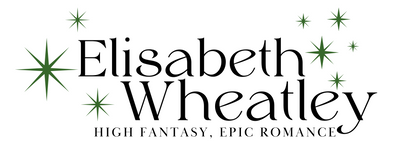Writing Women: When “Strong” Isn’t Enough
“Strong female character” has turned into a bit of a buzzword. I used to love it, but I’m not so hyped about it now. Don’t get me wrong, I’d much prefer a strong female character to a weak one. But “strong” does not mean “well-written.”
“Strong” does not necessarily mean “realistic,” “relatable,” or “presenting a positive view of womanhood.”
In pop culture today, we have three basic stereotypes/archetypes that only apply to female characters—the damsel, the evil queen, and the paragon.
Archetype #1: The Damsel (Mina in Dracula)
Helpless, virginal, prone to fainting/crying/screaming—this character is the one that exists to make us feel better about another character, usually the male hero. Though less popular now, the damsel archetype is still alive and well, sometimes even alongside the paragon—as seen with Princess Jehnna and Zula in Conan the Destroyer.
This is usually the archetype is usually cited as the one to avoid, drawing attention from it’s equally unfair and sexist counterparts.
Archetype #2: The Evil Queen (Bavmorda in Willow and Cirsei in Game of Thrones)
The evil queen is the opposite of the damsel. She is rebellious where the damsel is submissive, manipulative where the damsel is passive, sexually insatiable where the damsel is chaste, and power-hungry where the damsel is humble and “content with a simple life.”
Archetype #3: The Paragon (Alice in Resident Evil and Arya in Eragon)
The third unhealthy archetype, the paragon, is alive and well, too. This archetype shows a female (or can be any minority) character as hyper-competent. In the case of female characters in Fantasy, it usually takes the form of unparalleled fighting skill that levels armies and dominates men.
These characters tend to be emotionally detached and show a disdain for culturally feminine things and women who embrace them. They “don’t need a man” yet almost always have a tragic backstory involving a romantic interest.
Notice that two out of three of these tropes can be called “strong.”
The Evil Queen takes what she wants and stands up for herself. The Paragon takes what she wants and stands up for herself. I would say both could be considered strong, but neither is a healthy view of feminity and neither is what I want to emulate personally.
Unpopular opinion: Tolkien is criticized for his portrayal of women, but I still consider him far ahead of his time.
The warrior princess, Èowyn, has tender moments as well as moments of literally stabbing evil in the face. Galadriel, not her husband, is the one wizards and kings seek for counsel.
No, the trilogy doesn’t pass the Bechdel Test. No, it can’t be considered feminist by any stretch. However, like Shakespeare, I believe Tolkien deserves more credit for getting the ball rolling on empowerment in his genre.
As they say, if you see a problem, you fix it. That’s why I work to bring a positive portrayal of formidable women in my stories.
Whether you prefer the term strong, well-developed, realistic, or something else, my goal is to write my female characters with diverse personalities, abilities, and appearances—but also tenderness.
I want to show women can be cruel, women can be tough, but also that strength doesn’t mean you can’t cry or that you’re never hurt.
I set out to create empowered, independent heroines who are still allowed to have doubts, second guess themselves, and be vulnerable.
We ladies spend so much time telling ourselves we can be strong. That’s fantastic and I say that to myself and others all the time. But I think we forget sometimes that doesn’t mean we can’t be soft. In fact, you must be strong to be soft.
Being truly strong isn’t just about being outwardly tough, it’s about being inwardly tough. It’s about having healthy boundaries and not holding grudges so that you can love freely and forgive relentlessly.
I truly believe that if we are going to see the love, compassion, and tenderness our world so desperately needs right now, women are going to have to stand up against the lie that they must be harsh to be powerful.
It takes courage to be kind. – Maya Angelou
Download the first Argetallam Saga book for free on all platforms.

In a world where magic is revered, what could be worse than the power to steal it?
Amazon | BN.com | iBooks | Kobo | Smashwords


Leave a comment